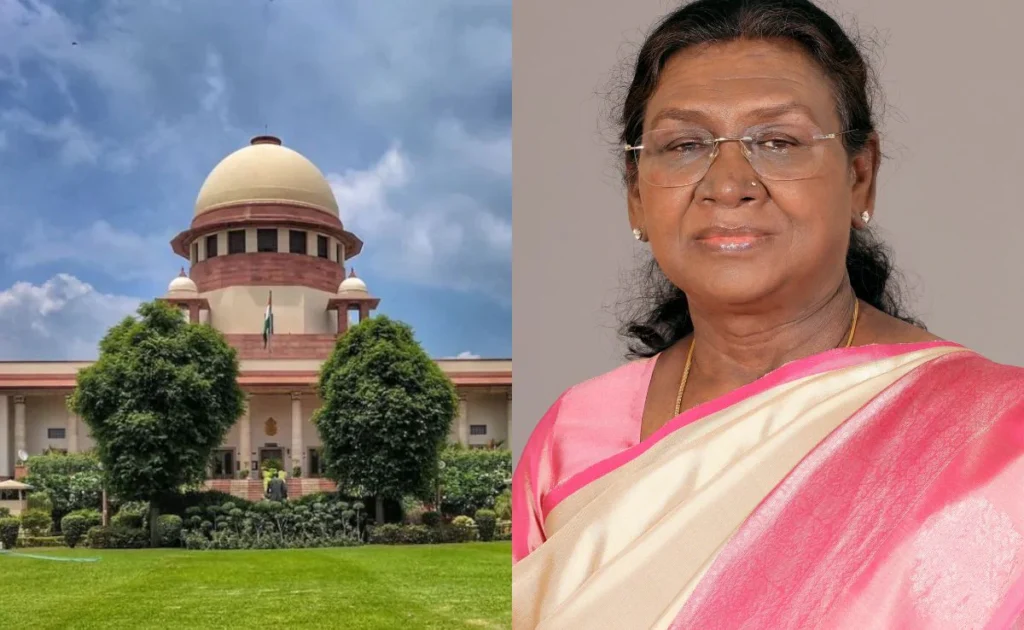President Droupadi Murmu wrote to the Supreme Court to ask whether it would be possible to impose deadlines on the governors, one month after the court’s landmark decision in the Tamil Nadu case effectively gave the president and governors a deadline to approve bills passed by the legislature.
President Murmu has asked for the Supreme Court’s opinion in accordance with Article 143 of the Constitution, which gives the President the power to consult the court on legal issues or issues of public interest.
“When a Bill is brought before the Governor under Article 200 of the Constitution of India, is he bound by the assistance and counsel offered by the Council of Ministers while using all of his options?” The high court was questioned by the president.

President Murmu inquired as to whether a governor’s use of constitutional discretion is susceptible to judicial review and trial. She referred to Article 361 of the Constitution, which states that the governor or president cannot be held accountable to a court for using their official authority.
“Can timelines be imposed and the manner of exercise be prescribed through judicial orders for the exercise of discretion by the President under Article 201 of the Constitution of India in the absence of a constitutionally prescribed timeline and the manner of power utilization by the President?” In order to get their opinion on the matter, President Murmu sought advice from the Supreme Court.
Also check:- JNU Suspends MoU with Turkish University Citing ‘National Security’
A bench consisting of Justices JB Pardiwala and R Mahadevan used the court’s special powers in April to end a standoff between Governor RN Ravi and the Tamil DMK administration over blocked bills. The court ruled that the Governor’s denial of 10 bills was “illegal and arbitrary” and gave the President and Governors three months to clear legislatively enacted bills for the second time.
The ruling also stated that when it comes to constitutional issues, the President must confer with the courts.
According to the bench, if the matter involves policies, the Supreme Court may decide not to offer its advisory opinion. “The court’s exercise of self-imposed restraint in matters involving purely political considerations is consistent with the political thicket doctrine, which states that the courts refrain from entering areas of governance where the executive is granted a prerogative exclusively by the Constitution.”
But in some extraordinary cases, the governor may hold a bill for the president’s consideration if he believes it threatens democratic values and a constitutional interpretation is required to determine whether or not the legislation should be approved. The executive is expected to exhibit discretion in situations when a law has been reserved primarily due to its inconsistency with constitutional principles and includes constitutional validity issues,” the statement stated.
The Supreme Court now has the authority to decide whether to repeat the ruling of its previous two-judge bench or form a Constitution bench to investigate the matter brought up by the President. This occurs as Chief Justice of India BR Gavai, who took the oath of office yesterday, becomes the next head of the highest court.

